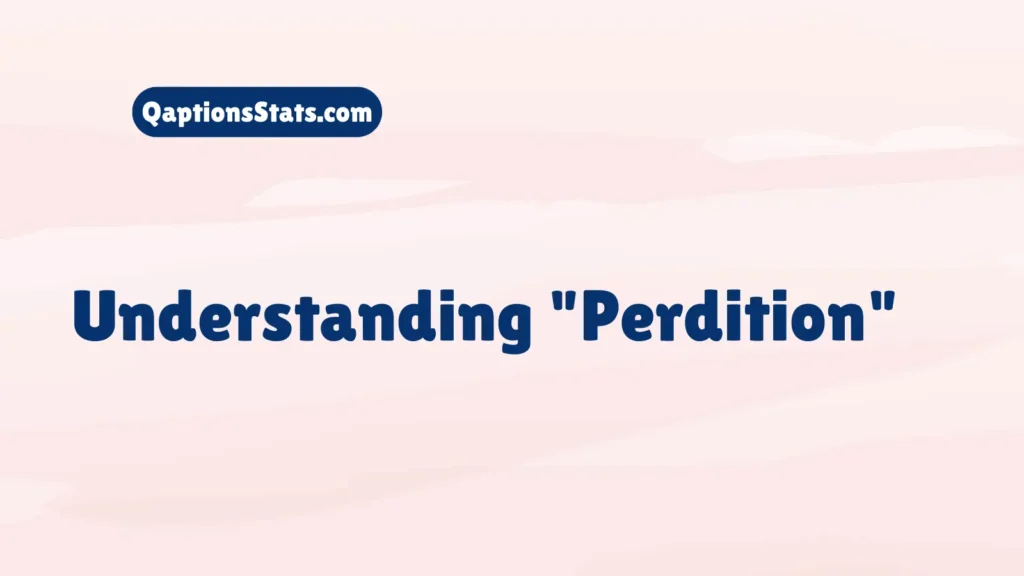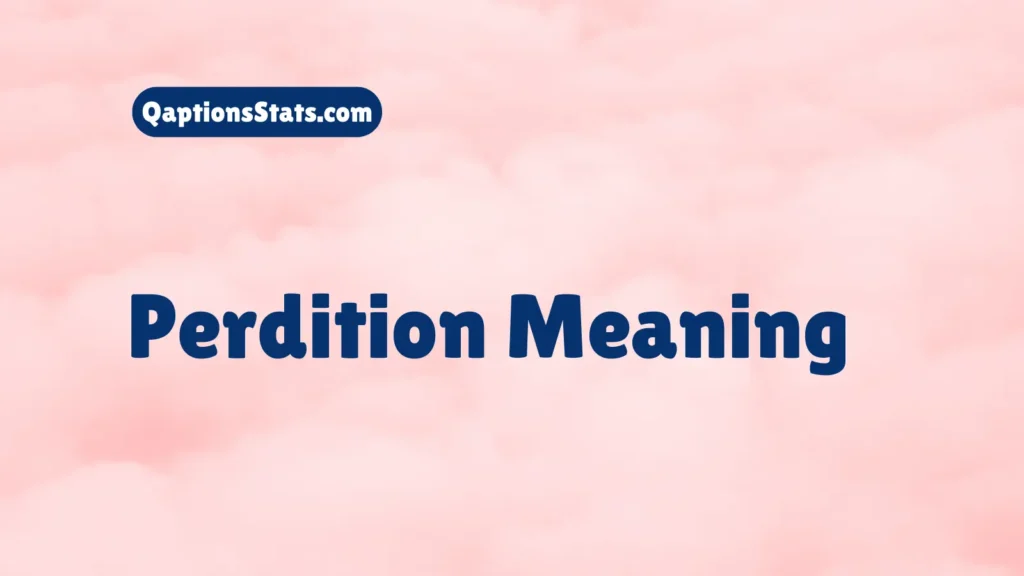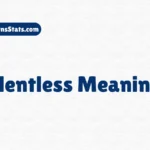Language is a powerful tool that allows us to express complex ideas, emotions, and concepts. Among the vast array of words in the English language, some carry profound meanings that delve into philosophical, religious, and emotional realms. One such word is “perdition.” This article aims to provide a comprehensive understanding of the term “perdition,” its origins, usage, and nuances. Additionally, we will explore the meaning of “hiatus,” its applications, and various alternatives to express the concept in different contexts.
Understanding “Perdition”

Definition
“Perdition” is a noun that primarily refers to a state of eternal punishment and damnation into which a sinful and unrepentant person passes after death. It is often associated with the concept of hell in Christian theology. Beyond its religious connotation, “perdition” can also denote a state of complete ruin or destruction.
Related post: To No Avail: Meaning, Usage, and Alternatives
Etymology
The word “perdition” originates from the Latin term “perditio,” which means “ruin” or “destruction.” This, in turn, comes from the verb “perdere,” meaning “to destroy” or “to lose.” The term entered Middle English through Old French, retaining its association with loss and ruin.
Religious Context
In Christian theology, “perdition” is synonymous with eternal damnation. It represents the final state of the wicked, condemned to suffer in hell for eternity. The term is often used in religious texts and sermons to emphasize the consequences of sin and the importance of salvation.
Example:
“The unrepentant sinner faces eternal perdition.”
Related post: 🖤 Black Heart Meaning: Exploring Its Symbolism and Usage
Literary Usage
“Perdition” has been employed in literature to evoke themes of doom, despair, and irreversible loss. Its dramatic flair makes it a powerful word in poetry and prose.
Example:
“In his quest for power, he led his kingdom to the brink of perdition.”
Modern Usage
While less common in everyday conversation, “perdition” is still used metaphorically to describe situations of utter ruin or disaster.
Example:
“Engaging in such reckless behavior will lead you to perdition.”
Read also: Chisme Meaning: Understanding the Cultural Nuances of Gossip
Exploring “Hiatus”
Definition
A “hiatus” is a noun that refers to a pause or gap in a sequence, series, or process. It signifies a temporary break or interruption in continuity.
Etymology
The term “hiatus” comes from the Latin word of the same spelling, meaning “opening” or “gap.” It is derived from the verb “hiare,” which means “to gape” or “to yawn.”
Usage in Different Contexts
- Professional Context:
A hiatus can refer to a break in one’s career or professional activities.
Example:
“After a five-year hiatus, she returned to the corporate world.” - Entertainment Industry:
In television and music, a hiatus indicates a temporary break in production or performance.
Example:
“The band announced a hiatus to focus on individual projects.” - Academic Context:
Scholars may take a hiatus from teaching or research for various reasons.
Example:
“He is on a sabbatical hiatus to complete his book.” - Anatomy:
In medical terminology, a hiatus refers to a natural opening or passage in the body.
Example:
“The esophageal hiatus is an opening in the diaphragm.”
Alternatives to “Hiatus”
Depending on the context, several synonyms and phrases can be used in place of “hiatus” to convey a similar meaning. Here are 11 alternatives, categorized by tone and formality:
1. Break
- Tone: Neutral
- Usage: General term for a pause or interruption.
- Example: “She took a short break from work to travel.”
2. Pause
- Tone: Neutral
- Usage: A brief stop or interruption.
- Example: “There was a pause in the conversation.”
3. Intermission
- Tone: Formal
- Usage: Commonly used in theater or performances.
- Example: “The play had a 15-minute intermission.”
4. Interval
- Tone: Formal
- Usage: A period between events or activities.
- Example: “There was a short interval between the two meetings.”
5. Sabbatical
- Tone: Formal
- Usage: A break from work, often for study or travel.
- Example: “She is on a sabbatical to pursue further education.”
6. Recess
- Tone: Formal
- Usage: A break in proceedings, especially in legal or governmental contexts.
- Example: “The court is in recess until Monday.”
7. Time-off
- Tone: Informal
- Usage: A period when one is not at work.
- Example: “He took some time off to relax.”
8. Leave
- Tone: Neutral
- Usage: Authorized absence from work.
- Example: “She is on maternity leave.”
9. Lull
- Tone: Neutral
- Usage: A temporary period of quiet or inactivity.
- Example: “There was a lull in the conversation.”
10. Respite
- Tone: Formal
- Usage: A short period of rest or relief.
- Example: “The weekend provided a respite from work.”
11. Interruption
- Tone: Neutral
- Usage: A break in continuity.
- Example: “The power outage caused an interruption in service.”
Choosing the Right Alternative
Selecting the appropriate synonym for “hiatus” depends on the context and the desired tone:
- Professional Settings: “Sabbatical,” “leave,” or “respite” convey formality and purpose.
- Casual Conversations: “Break,” “time-off,” or “pause” are more relaxed and commonly used.
- Artistic or Performance Contexts: “Intermission” or “interval” are specific and appropriate.
- Legal or Governmental Proceedings: “Recess” is the standard term.



